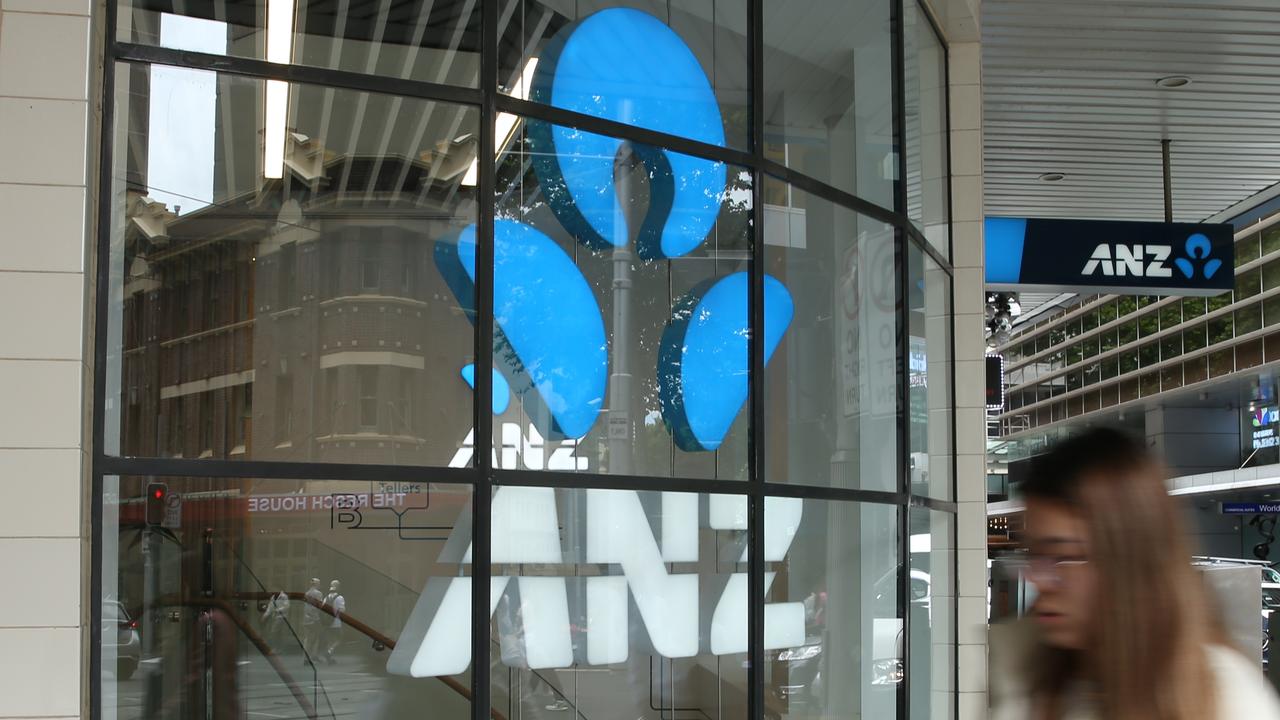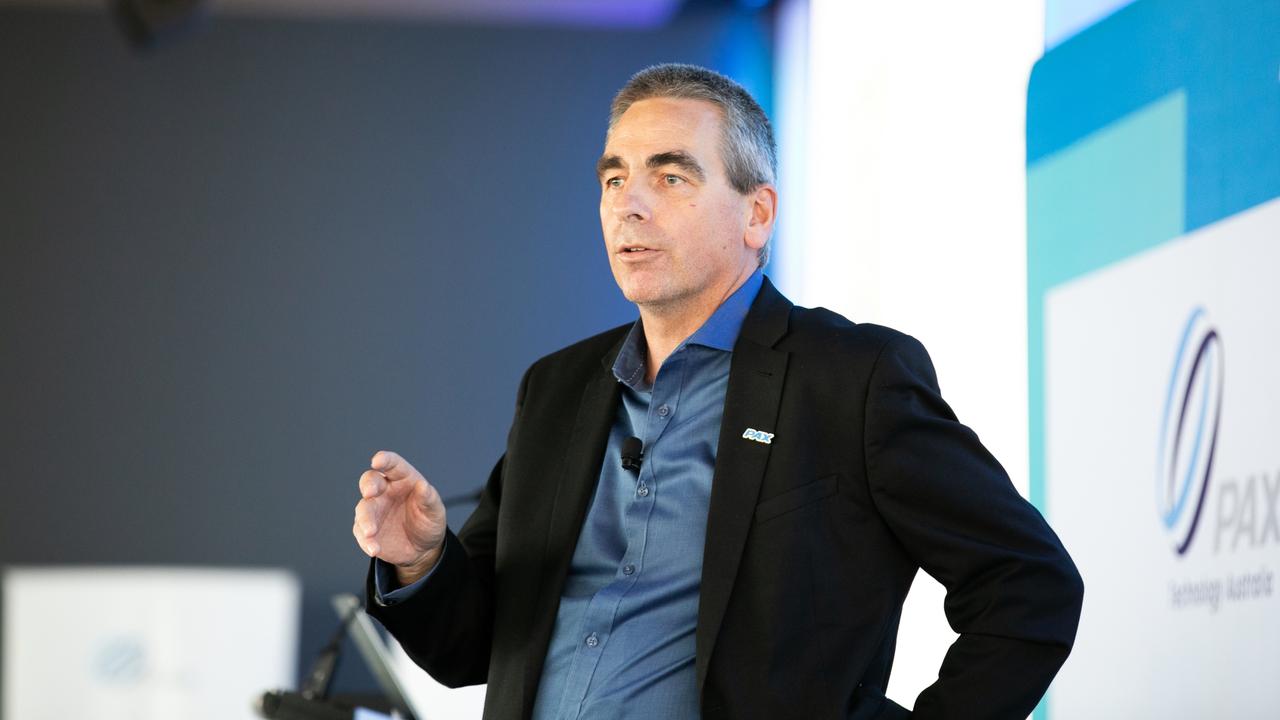CBA chief Matt Comyn: Uncertainty ‘hangs’ over economy
Commonwealth Bank chief executive Matt Comyn says the bank is being ‘prudent’ by planning for scenarios ‘more negative’ than RBA forecasts.

Commonwealth Bank chief executive Matt Comyn says a “great degree of uncertainty” still hangs over the economy, as activity slowly restarts in some sectors and banks brace for loan losses with combined COVID-19 charges swelling to almost $5bn.
Mr Comyn disclosed CBA’s expected charges relating to the pandemic of $1.5bn in a March quarter update on Wednesday, taking total credit provisions at the nation’s biggest home lender to $6bn.
CBA followed its major rivals in booking COVID-19 charges amid early signs of stress in its lending book and expectations that business, home loan and consumer finance borrowers will be pummelled by the pandemic’s impact on cashflow and employment.
NAB has booked pandemic charges of $807m, ANZ stands at $1bn and Westpac at $1.6bn.
CBA’s provisions came as the bank sealed a $1.7bn deal to sell 55 per cent of wealth unit Colonial First State to private equity heavyweight KKR, rounding out a divestment spree of its wealth assets. To get the transaction across the line Mr Comyn spoke at length to George Roberts, one of KKR’s founders and its co-chairman and joint-CEO.
On prospects for the domestic economy, Mr Comyn has drawn on the Reserve Bank of Australia’s forecasts from last week but stressed that CBA’s modelling continued to evolve.
“There still remains a great degree of uncertainty. We’ll do everything that we can to support that (government) economic recovery plan, but it’s also prudent for us to plan for scenarios that are more negative than that,” he said.
“The ability by which we look to restart parts of the economy and rebuild and restore confidence … and continue to deliver very good health outcomes, and limit the transmission of the virus, is going to be a key determinant on the overall economic activity in Australia.”
CBA’s provisions are based on a midpoint of its economic scenario for a downturn and a prolonged downturn.
In the downturn model, economic output contracts 6 per cent in calendar 2020, unemployment averages 8.25 per cent and house prices fall 11 per cent over three years. It sees the economy recover in 2021 to positive growth of 6 per cent.

The more severe scenario has negative growth of 7 per cent in 2020 followed by a slight contraction in 2021, and house prices tumbling 32 per cent over three years.
Regal Funds Management portfolio manager Mark Nathan said while all the banks adopted a number of scenarios to determine capital impacts, the base cases for each bank varied.
“No two banks are the same. While CBA’s assumptions look reasonable, the provisions that they have taken put them in the strongest relative position compared to credit risk of their loans,” he said. “Whether the provisions are ultimately sufficient will also be affected by any significant institutional borrower defaults, as was the case during the GFC.”
CBA’s shares rose 1.9 per cent to $60.85 on Wednesday, outpacing small gains for its three major rivals.
Moody’s analysis suggested Australian banks may need to increase credit provision charges by “large amounts” if the downturn was more severe than modelled.
“We do expect further credit provision charges in the second half,” the report said. “However, given the significant increase in credit loss reserves, we expect further charges in the second half will be lower.”
CBA has handled repayment deferral requests for 240,000 loans and ploughed $9bn into supporting businesses during the pandemic.
Its common equity tier one capital ratio printed at 10.7 per cent as at March 31, taking into account a dividend paid in that month. That is above the regulator’s “unquestionably strong” threshold.
The sale of the CFS stake is expected to see a pro forma rise in the ratio of 30-40 basis points. Capital is also helped by other CBA divestments across markets including China and Indonesia.
Mr Comyn remained upbeat on CBA’s ability to pay dividends, despite the banking regulator’s guidance on capital.
“It’s understandable from a prudential regulator’s perspective in wanting to be actively involved and ensuring there is careful consideration around dividend distribution, given the economic uncertainty,” he said.
“My view still remains that Australian banks are very well capitalised by international standards.”
Mr Comyn said the board would make a decision around dividends in August, after more stress testing and dialogue with the Australian Prudential Regulation Authority.
“We’ll certainly have a better handle on how the economy has been restarted and some clearer economic data,” he added.
APRA guidance in April urged banks to seriously consider deferring decisions on dividends. So far, ANZ, Westpac and Bank of Queensland have postponed making calls on first-half dividends, while NAB slashed its payment.
CBA reported a drop in March quarter unaudited cash earnings to $1.3bn, and statutory profit also fell to $1.3bn. In the same quarter last year, cash net profit from continuing operations printed at $1.7bn and statutory profit at $1.75bn.
The bank’s net interest margin — what it earns on loans less funding and other costs — fell during the quarter.




To join the conversation, please log in. Don't have an account? Register
Join the conversation, you are commenting as Logout